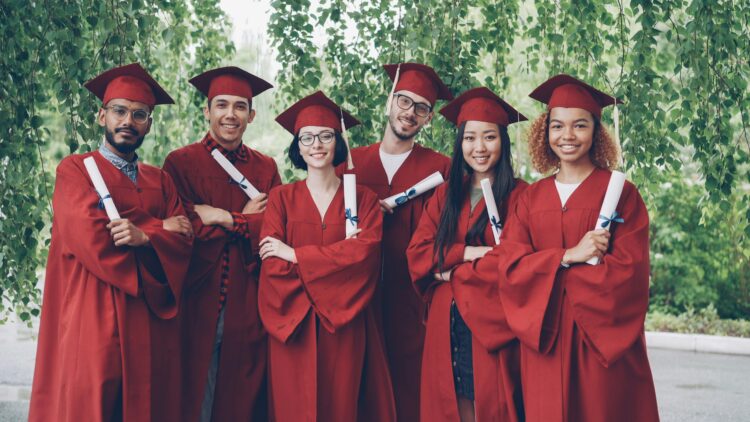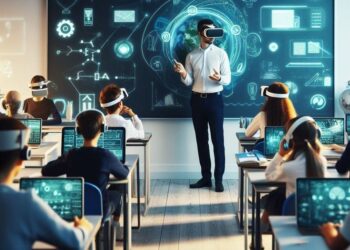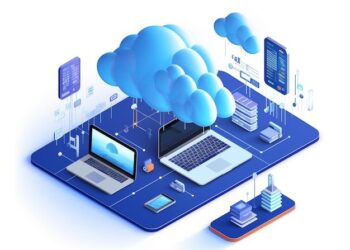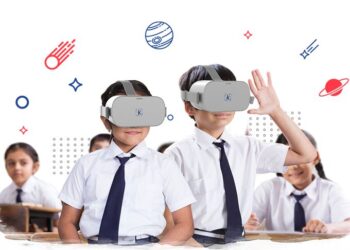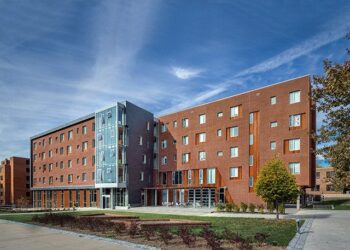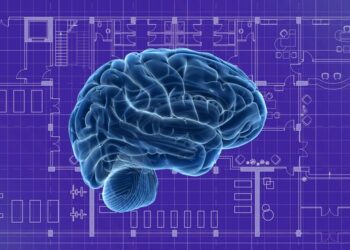In today’s rapidly evolving educational landscape, traditional one-size-fits-all teaching methods are increasingly proving inadequate for meeting the diverse needs of modern learners. Educational institutions worldwide are recognizing the transformative power of personalized learning approaches that adapt to individual student requirements, learning styles, and academic goals. This comprehensive exploration examines how customized educational strategies significantly improve student outcomes and revolutionize the learning experience.
Understanding Personalized Learning Fundamentals
Personalized learning represents a paradigm shift from conventional classroom instruction to individualized educational experiences that cater to each student’s unique characteristics. This approach acknowledges that learners possess different cognitive abilities, learning preferences, background knowledge, and motivational factors that influence their academic performance.
The foundation of personalized learning rests on the principle that education should adapt to students rather than forcing students to conform to rigid educational structures. This methodology encompasses various elements including adaptive pacing, customized content delivery, flexible learning environments, and continuous assessment strategies that inform instructional decisions.
Modern personalized learning systems utilize sophisticated algorithms and data analytics to track student progress, identify knowledge gaps, and recommend targeted interventions. These technological innovations enable educators to provide more precise and effective instruction that addresses individual learning needs in real-time.
Core Components of Effective Personalized Learning
Adaptive Learning Technologies
Contemporary personalized learning relies heavily on adaptive learning technologies that dynamically adjust content difficulty, presentation style, and pacing based on student performance. These intelligent systems analyze learning patterns and automatically modify instructional approaches to optimize comprehension and retention.
Adaptive platforms employ machine learning algorithms to identify optimal learning paths for individual students. When a learner demonstrates mastery of specific concepts, the system advances them to more challenging material. Conversely, when students struggle with particular topics, the technology provides additional practice opportunities and alternative explanations.
Individualized Learning Paths
Successful personalized learning programs create unique educational journeys for each student. These individualized paths consider factors such as prior knowledge, learning speed, academic interests, and career aspirations. Students progress through curriculum at their own pace, ensuring thorough understanding before advancing to more complex concepts.
The flexibility of personalized learning paths allows students to spend additional time on challenging subjects while accelerating through areas where they demonstrate proficiency. This approach prevents the frustration that often accompanies being held back by slower peers or the anxiety of being rushed through difficult material.
Competency-Based Progression
Rather than adhering to traditional time-based academic calendars, personalized learning emphasizes competency-based progression. Students advance upon demonstrating mastery of specific skills and knowledge areas, regardless of how long it takes to achieve proficiency.
This approach ensures that students develop solid foundational understanding before tackling advanced concepts. Competency-based systems typically include clear learning objectives, multiple assessment opportunities, and detailed feedback mechanisms that guide student development.
Technological Infrastructure Supporting Personalization
Learning Management Systems
Modern learning management systems serve as the backbone of personalized education, providing platforms where customized content, assessments, and resources are delivered to individual students. These systems track engagement, monitor progress, and generate detailed analytics that inform instructional decisions.
Advanced learning management platforms integrate various educational tools and resources, creating seamless learning experiences that adapt to student needs. They facilitate communication between students, teachers, and parents while maintaining comprehensive records of academic progress and achievements.
Artificial Intelligence Integration
Artificial intelligence plays an increasingly crucial role in personalizing educational experiences. AI-powered systems analyze vast amounts of student data to identify patterns, predict learning difficulties, and recommend targeted interventions before problems become significant obstacles.
Machine learning algorithms continuously refine their understanding of individual learning preferences, enabling more accurate predictions and recommendations. These systems can identify optimal study times, preferred content formats, and effective motivational strategies for each learner.
Data Analytics and Assessment
Comprehensive data collection and analysis form the foundation of effective personalized learning programs. Educational platforms gather information about student interactions, performance patterns, and learning behaviors to create detailed learner profiles.
Real-time analytics enable immediate feedback and course corrections, preventing small learning gaps from becoming major obstacles. Teachers receive actionable insights about student progress, allowing them to provide timely support and intervention when needed.

Benefits of Personalized Learning Implementation
Enhanced Student Engagement
Personalized learning significantly increases student engagement by presenting content in formats and contexts that resonate with individual learners. When educational material aligns with student interests and learning preferences, motivation and participation naturally improve.
Students become more invested in their learning when they have greater control over their educational experience. The ability to choose learning paths, set personal goals, and progress at their own pace creates a sense of ownership that traditional classroom settings often fail to achieve.
Improved Academic Performance
Research consistently demonstrates that personalized learning approaches lead to superior academic outcomes compared to traditional instructional methods. Students in personalized learning environments typically show:
A. Accelerated skill development in core academic subjects B. Enhanced critical thinking and problem-solving abilities
C. Improved retention of learned material D. Greater confidence in tackling challenging concepts E. Reduced achievement gaps between different student populations
Individual Learning Style Accommodation
Every student processes information differently, and personalized learning systems accommodate these variations by offering multiple content delivery methods. Visual learners benefit from graphic organizers and multimedia presentations, while auditory learners engage more effectively with podcasts and verbal explanations.
Kinesthetic learners thrive in environments that incorporate hands-on activities and interactive simulations. Personalized systems identify these preferences and adjust content presentation accordingly, ensuring optimal learning conditions for each individual.
Self-Directed Learning Development
Personalized learning environments foster the development of self-directed learning skills that prove invaluable throughout life. Students learn to set personal goals, monitor their progress, and take responsibility for their educational outcomes.
These metacognitive skills transfer beyond formal education settings, preparing students for lifelong learning in rapidly changing professional environments. The ability to identify knowledge gaps, seek appropriate resources, and evaluate learning effectiveness becomes increasingly important in modern careers.
Implementation Strategies for Educational Institutions
Teacher Professional Development
Successful personalized learning implementation requires comprehensive teacher training and ongoing professional development. Educators must understand how to interpret student data, adapt instructional strategies, and utilize technology effectively to support individualized learning.
Professional development programs should address both technical skills and pedagogical approaches necessary for personalized instruction. Teachers need support in transitioning from traditional classroom management to facilitating individualized learning experiences.
Curriculum Design and Alignment
Personalized learning programs require carefully designed curricula that can be adapted to individual student needs while maintaining alignment with educational standards and learning objectives. Curriculum developers must create modular content that can be recombined in various ways to support different learning paths.
Effective curriculum design includes multiple assessment points, varied content presentations, and flexible pacing options. Learning materials should be designed to accommodate different skill levels and learning preferences while ensuring comprehensive coverage of essential concepts.
Technology Integration Planning
Implementing personalized learning requires strategic technology integration that considers infrastructure requirements, device availability, and technical support needs. Schools must ensure reliable internet connectivity, adequate hardware resources, and comprehensive technical support systems.
Technology integration plans should include staff training, student orientation, and ongoing maintenance considerations. Institutions must also address data privacy and security concerns associated with comprehensive student tracking and analytics systems.
Challenges and Solutions in Personalized Learning
Resource Allocation and Funding
Implementing comprehensive personalized learning programs requires significant initial investments in technology infrastructure, curriculum development, and staff training. Many educational institutions struggle with budget constraints that limit their ability to adopt these innovative approaches.
Successful implementation often requires phased rollouts that allow institutions to demonstrate effectiveness and secure additional funding over time. Partnerships with technology companies, grants from educational foundations, and government funding programs can help offset implementation costs.
Data Privacy and Security Concerns
Personalized learning systems collect extensive data about student performance, behaviors, and preferences, raising important privacy and security considerations. Educational institutions must implement robust data protection measures and transparent privacy policies.
Compliance with educational data privacy regulations requires ongoing attention and regular system updates. Schools must balance the benefits of comprehensive data collection with the imperative to protect student privacy and maintain family trust.
Teacher Adaptation and Resistance
Some educators may resist transitioning from traditional teaching methods to personalized learning approaches due to concerns about technology complexity, increased workload, or philosophical differences about education.
Addressing teacher resistance requires comprehensive change management strategies that include adequate training, ongoing support, and clear communication about the benefits of personalized learning. Successful implementation often involves teacher leaders who champion the approach and support their colleagues through the transition.
Measuring Success in Personalized Learning
Academic Achievement Metrics
Evaluating the effectiveness of personalized learning requires comprehensive assessment strategies that go beyond traditional standardized test scores. Multiple measures of academic progress provide more complete pictures of student achievement and growth.
Key performance indicators include skill mastery rates, learning velocity, engagement metrics, and long-term retention assessments. These varied measures help educators and administrators understand the full impact of personalized learning initiatives.
Student Satisfaction and Engagement
Student feedback and engagement data provide valuable insights into the effectiveness of personalized learning programs. Regular surveys, focus groups, and behavioral analytics help identify areas for improvement and refinement.
High levels of student satisfaction and engagement often correlate with improved academic outcomes and reduced dropout rates. Monitoring these factors helps ensure that personalized learning programs meet student needs and expectations.
Long-Term Educational Outcomes
The ultimate success of personalized learning should be measured by long-term educational outcomes including graduation rates, college readiness, career preparation, and lifelong learning skills development. These metrics require longitudinal studies and comprehensive tracking systems.
Research indicates that students who experience effective personalized learning demonstrate improved outcomes in higher education and professional settings. They develop stronger self-regulation skills, greater academic confidence, and more effective learning strategies.

Future Directions in Personalized Learning
Emerging Technologies and Innovations
The future of personalized learning will likely incorporate emerging technologies such as virtual reality, augmented reality, and advanced artificial intelligence systems. These innovations will create even more immersive and adaptive learning experiences.
Virtual and augmented reality technologies can provide experiential learning opportunities that were previously impossible in traditional classroom settings. Students can explore historical events, conduct virtual science experiments, and engage with complex concepts through interactive simulations.
Scalability and Accessibility
Future developments in personalized learning will focus on improving scalability and accessibility to ensure that all students, regardless of socioeconomic status or geographic location, can benefit from individualized educational experiences.
Cloud-based platforms, mobile learning applications, and offline capabilities are making personalized learning more accessible to diverse populations. These technological advances help bridge educational equity gaps and democratize access to high-quality personalized instruction.
Integration with Traditional Education
The most effective educational systems will likely combine the best elements of personalized learning with valuable aspects of traditional instruction. Blended learning models that incorporate both individualized and collaborative learning experiences offer comprehensive educational approaches.
Future educational environments may feature flexible spaces that can accommodate both independent study and group collaboration. These hybrid models leverage the benefits of personalization while maintaining important social and collaborative learning opportunities.
Conclusion
Personalized learning represents a fundamental transformation in educational philosophy and practice that has demonstrated significant potential for improving student outcomes. By adapting instruction to individual learning needs, preferences, and goals, personalized learning systems create more engaging, effective, and equitable educational experiences.
The successful implementation of personalized learning requires careful planning, adequate resources, and ongoing commitment from educational stakeholders. While challenges exist, the growing body of evidence supporting personalized learning approaches suggests that these investments yield substantial returns in terms of student achievement and satisfaction.
As technology continues to advance and educational research provides deeper insights into learning processes, personalized learning will likely become increasingly sophisticated and effective. Educational institutions that embrace these innovations today position themselves at the forefront of educational excellence and prepare their students for success in an increasingly complex and dynamic world.
The future of education lies in recognizing and responding to the unique potential of every learner. Personalized learning provides the framework and tools necessary to unlock this potential, creating educational experiences that truly serve the individual needs of all students while preparing them for lifelong success and fulfillment.

